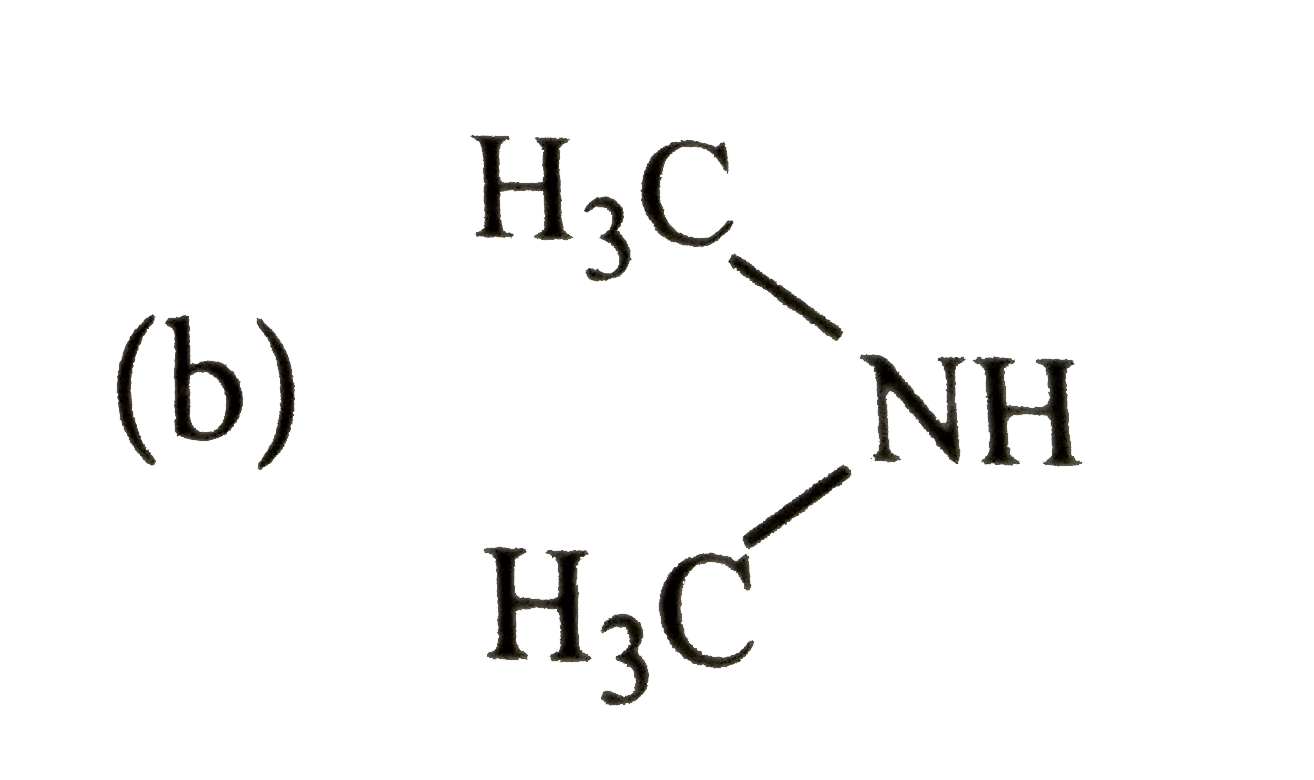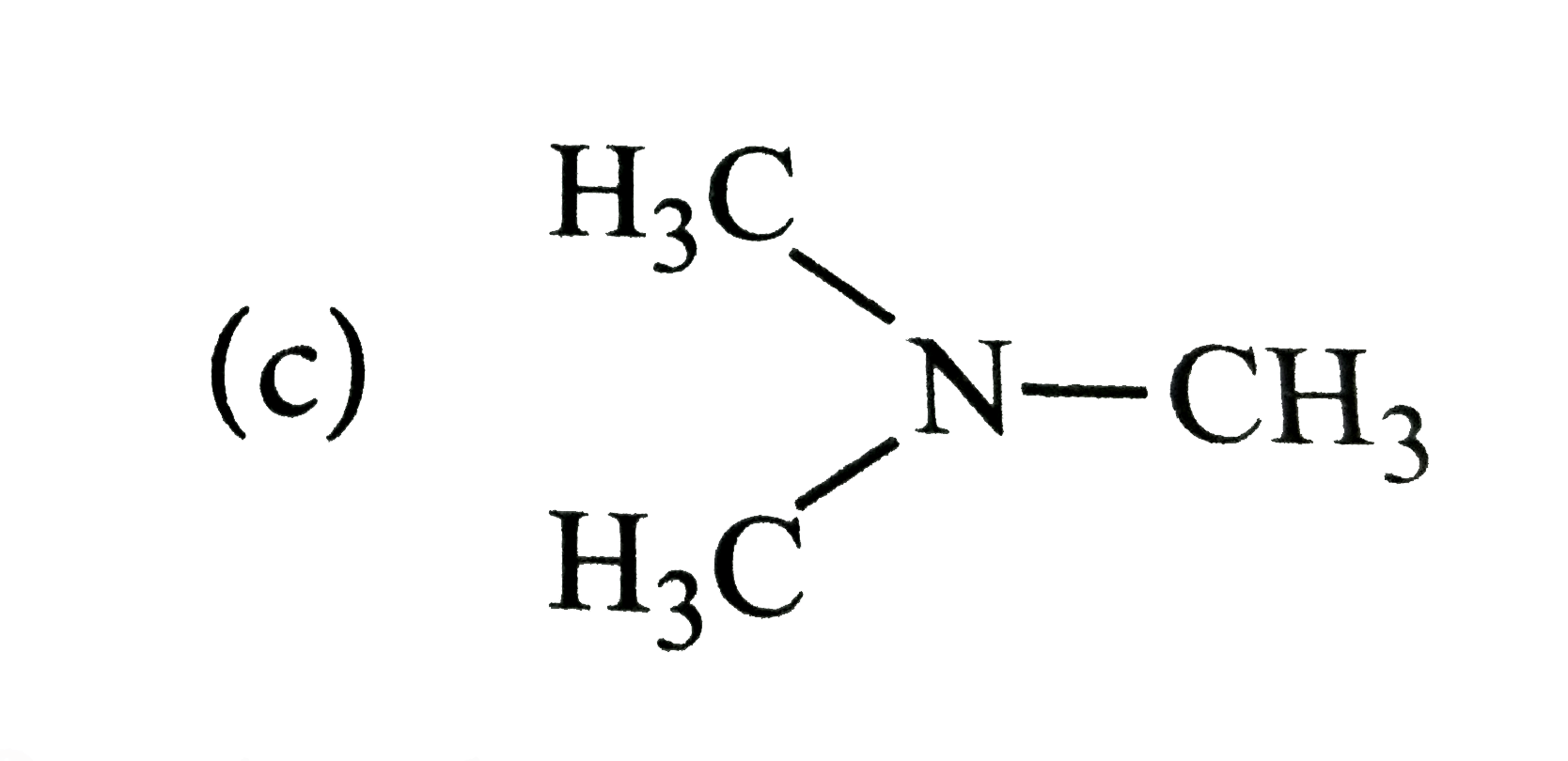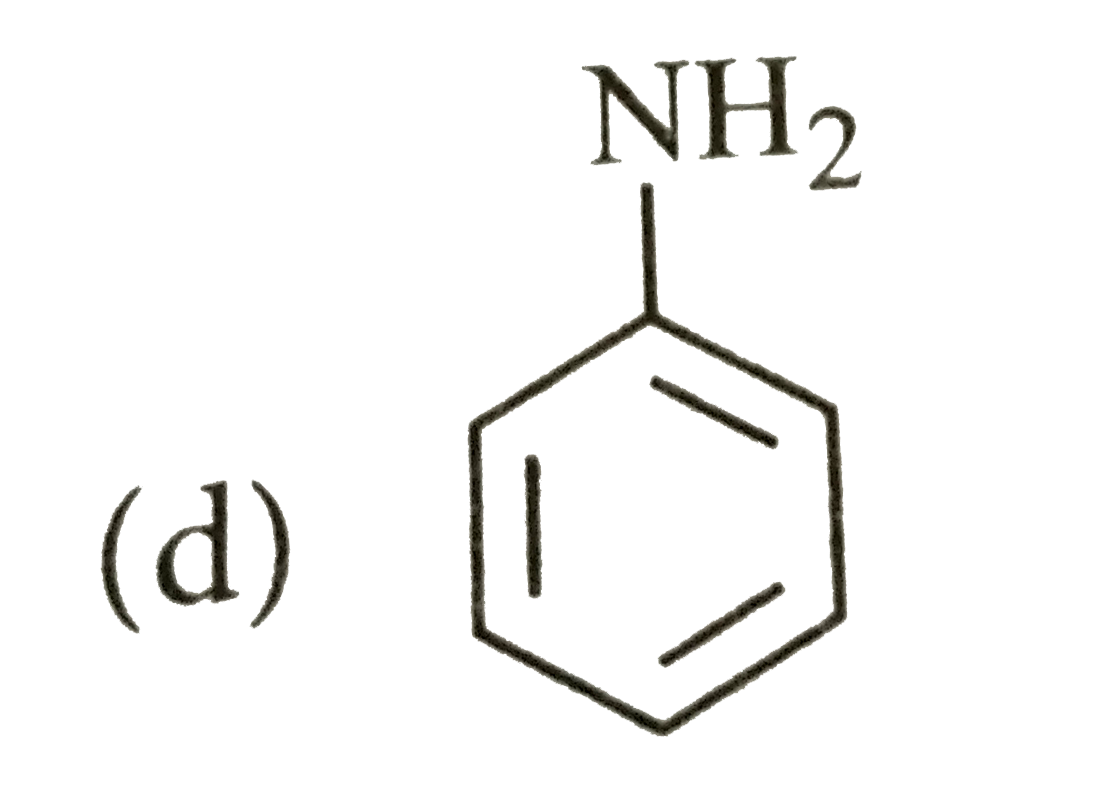The most reactive amine towards dilute hydrochloric acid is
CH3−NH2



To determine the most reactive amine towards dilute hydrochloric acid (HCl), we need to evaluate the basicity of the given amines. The reactivity of amines towards acids is directly related to their basicity; the more basic an amine is, the more reactive it will be towards an acid.
1. Identify the Amines: The options given are:
- (A) CH3NH2 (Methylamine)
- (B) Dimethylamine (NH(CH3)2)
- (C) Trimethylamine (N(CH3)3)
- (D) Aniline (C6H5NH2)
2. Understand Basicity: Basicity in amines is influenced by the availability of the lone pair of electrons on the nitrogen atom. Alkyl groups are electron-donating, which increases the electron density on nitrogen, enhancing basicity.
3. Compare Basicity:
- Methylamine (CH3NH2): This is a primary amine, and its basicity is moderate.
- Dimethylamine (NH(CH3)2): This is a secondary amine. Secondary amines are generally more basic than primary amines due to the presence of two electron-donating methyl groups.
- Trimethylamine (N(CH3)3): This is a tertiary amine. Tertiary amines are less basic than secondary amines because the steric hindrance from three methyl groups makes it harder for the nitrogen to donate its lone pair.
- Aniline (C6H5NH2): Aniline is a primary amine, but the lone pair on nitrogen is delocalized into the aromatic ring, making it less basic than aliphatic amines.
4. Rank the Amines by Basicity:
- Dimethylamine (highest basicity)
- Methylamine
- Aniline
- Trimethylamine (lowest basicity)
5. Conclusion: Since the reactivity of amines towards dilute HCl is directly proportional to their basicity, the most reactive amine towards dilute hydrochloric acid is Dimethylamine (B).
Final Answer:
The most reactive amine towards dilute hydrochloric acid is Dimethylamine (B).
- (A) CH3NH2 (Methylamine)
- (B) Dimethylamine (NH(CH3)2)
- (C) Trimethylamine (N(CH3)3)
- (D) Aniline (C6H5NH2)
- Methylamine (CH3NH2): This is a primary amine, and its basicity is moderate.
- Dimethylamine (NH(CH3)2): This is a secondary amine. Secondary amines are generally more basic than primary amines due to the presence of two electron-donating methyl groups.
- Trimethylamine (N(CH3)3): This is a tertiary amine. Tertiary amines are less basic than secondary amines because the steric hindrance from three methyl groups makes it harder for the nitrogen to donate its lone pair.
- Aniline (C6H5NH2): Aniline is a primary amine, but the lone pair on nitrogen is delocalized into the aromatic ring, making it less basic than aliphatic amines.
- Dimethylamine (highest basicity)
- Methylamine
- Aniline
- Trimethylamine (lowest basicity)
The most reactive amine towards dilute hydrochloric acid is Dimethylamine (B).
Topper's Solved these Questions
- AMINES BOOK - NCERT FINGERTPS ENGLISHCHAPTER - AMINES EXERCISE - NCERT EXEMPLER PROBLEMS
3 Videos
- AMINES BOOK - NCERT FINGERTPS ENGLISHCHAPTER - AMINES EXERCISE - ASSERTION & REASON CORNER
14 Videos
- AMINES BOOK - NCERT FINGERTPS ENGLISHCHAPTER - AMINES EXERCISE - HOTS
6 Videos
- ALDEHYDES, KETONES AND CARBOXYLIC ACIDSBOOK - NCERT FINGERTPS ENGLISHCHAPTER - ALDEHYDES, KETONES AND CARBOXYLIC ACIDSEXERCISE - Assertion And Reason
15 Videos
- BIOMOLECULESBOOK - NCERT FINGERTPS ENGLISHCHAPTER - BIOMOLECULESEXERCISE - Assertion And Reason
15 Videos
Similar Questions
The most reactive towards SN1 is:
View SolutionWrite balanced chemical equation for the reaction of zine and dilute hydrochloric acid.
View SolutionThe compound which gives propane on reduction with Zn and dilute hydrochloric acid is
View SolutionWrite balanced equation for the reaction of zinc and dilute hydrochloric acid.
View SolutionMost reactive alkene towards dil. HCl is
View SolutionWrite the reaction of zinc oxide with dilute hydrochloric acid.
View SolutionGive reason for the following:
Potassium and sodium are not used for reaction with dilute hydrochloric acid or dilute sulphuric acid in laboratory preparation of hydrogen.
View SolutionWhen sodium carbonate reacts with dilute hydrochloric acid, the gas evolved is
View SolutionWhich of the following metals reacts explosively with dilute hydrochloric acid to liberate hydrogen?
View SolutionWrite balanced equations for the reaction of dilute hydrochloric acid with iron.
View Solution